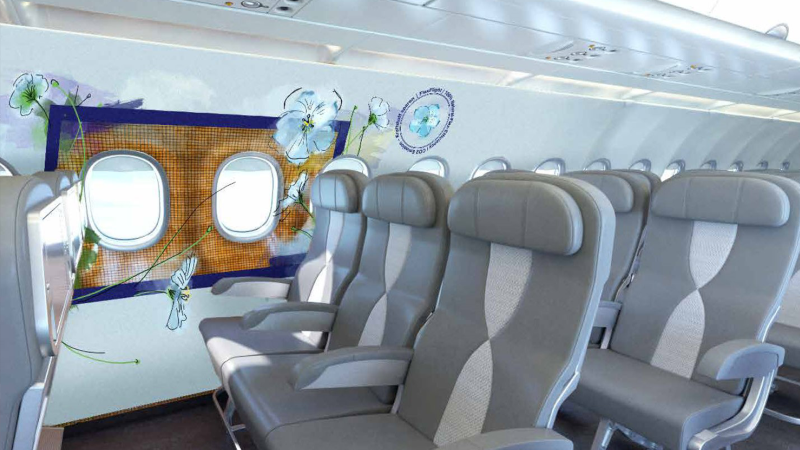
Credit: Lufthansa Technik
HAMBURG—As part of aviation’s endeavor to become sustainable, the manufacturers of cabin-related components are looking for composite materials with a smaller environmental footprint, either recyclable or bio-sourced. While Lufthansa Technik is developing a material that uses vegetal fiber and a bio...
Subscription Required
This content requires a subscription to one of the Aviation Week Intelligence Network (AWIN) bundles.
Schedule a demo today to find out how you can access this content and similar content related to your area of the global aviation industry.
Already an AWIN subscriber? Login
Did you know? Aviation Week has won top honors multiple times in the Jesse H. Neal National Business Journalism Awards, the business-to-business media equivalent of the Pulitzer Prizes.

